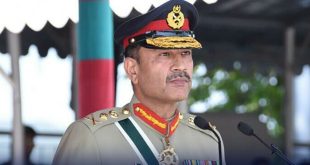By Dr. Zia Nezam-Global terrorism has opened subsidiaries in five continents. Attacks are now becoming a tragic routine in the heart of Europe. In this new chaotic environment, Afghanistan has fallen off the radar of media attention. Security today in Afghanistan reflects security tomorrow in other countries. The global community has work very hard in the past 15th years in the reconstruction of Afghanistan, and it would be a shame to walk away with a job half-finished, especially when we are close to success. The last thing we want is for Afghanistan to follow the footsteps of Iraq.
Next October will mark the 15th year of allied military engagement in Afghanistan. From 2001 to 2014, Operation Enduring Freedom has mobilized NATO Nations and 43 countries in the ISAF forces. The coalition has suffered a severe human toll with 3,518 soldiers and contractors killed, including 2,282 Americans. After the withdrawal of our allies, a residual military presence has been sustained. According to the official statistics of the coalition, NATO operation Resolute Support is currently deploying about 12,800 troops in Afghanistan, including some 6,900 Americans. In addition, 2,900 U.S. troops are mobilized in the mission Freedom’s Sentinel for counterterrorism operations.
Without any doubt, the initial purposes of the coalition were successfully achieved: al-Qaeda is not the main enemy anymore: its leadership was eliminated, its capacity was destroyed and its bases of operations were dismantled. The security situation of Afghanistan has improved from massive violence to sporadic attacks. The transformational agenda for democracy and reconstruction is still a work in progress but most Afghan people agree on this positive effort.
However, Afghanistan still needs the global support before become self-dependent. Currently, no province can claim full security and at least 29 of 34 of them are still exposed to terrorism. Terrorists have changed names, leadership and affiliation. Now relocated on the other side of the border with Pakistan, they are waging asymmetric warfare. Just last Saturday, more than 80 people were killed when suicide bombers attacked a large demonstration in Kabul.
Moreover, the UN has recently reported that more than 150,000 Afghans have left their homes in the first six months of 2016 as a result of a surge in violence. The total number of the internally displaced persons (IDPs) in Afghanistan will exceed a million this year.
Terrorists are mainly coming from the Haqqani network, an insurgent group based in Pakistan. Inspired by Al-Qaeda, this group plans to reverse the transformation of Afghanistan and to establish a fundamental Islamist regime. The Haqqani Network doesn’t claim a global Jihad agenda and this is a critical point. Widely considered as a home-grown organization without global ambition, the Haqqani network has benefited from a lower attention from our Western allies until recently. This was a major mistake. When it comes to terrorism, there is no minor capacity, no benign influence and no limited perimeter. Therefore, the war on terrorism cannot be won without also dismantling the Haqqani network.
In a step in the right direction, our American ally has recently changed perspectives and this is a very positive evolution. U.S. forces are now focusing with a clear priority on fighting Taliban and Haqqani insurgents who are the main causes of insecurity in Afghanistan. In addition, President Obama has revised military plans and announced that 8,400 U.S. troops would remain at the end of this year. This is a substantial effort considering that the lower numbers of 5,500 troops were planed previously.
In addition, our allies should also address the passive support of Pakistan to Islamist insurgents operating in Afghanistan. As long as terrorists will enjoy sanctuaries on the other side of the border, our joint military effort will be vain. Most security experts are voicing concerns on a situation that has the potential to destabilize the wider region. The international community should acknowledge the sad paradox that Pakistan, a country exposed to domestic terrorism, has traded stability with Islamist extremists.
Counter-insurgency operations across Afghanistan have been undertaken under Afghan command since 2014. The Afghan forces have achieved impressive progresses in spite of operational limits. Still, the lessons learnt from the last two years highlight that further support is required at combat unit level. Allied military and experts are present for routine training, advising and logistics assistance. We can only invite them to increase their assistance and increase the targeted air strikes in Pakistan against the Haqqani network and Taliban leadership. The job in Afghanistan is not finished but peace is never a lost cause when a strong determination brings allies together against a common enemy.
The writer is Former Ambassador of Afghanistan to Vienna, Brussels and Rome.
 Afghanistan Times
Afghanistan Times




